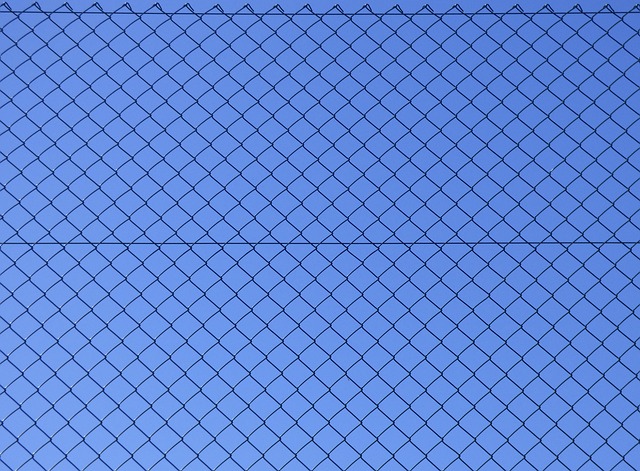In New Bedford, MA, the push for eco-friendly living has extended beyond gardens to include outdoor structures like fencing. This city, with its rich environmental consciousness, is witnessing a shift towards sustainable fencing materials that not only reduce ecological impact but also offer aesthetically pleasing and durable solutions. This article explores the emerging trends in eco-friendly fencing, highlighting the benefits, diverse material options from traditional wood to recycled plastics, installation considerations, local availability, and support for green initiatives that are transforming New Bedford’s outdoor landscapes.
- Eco-Friendly Fencing Trends in New Bedford
- Benefits of Sustainable Fencing Choices
- Materials: From Wood to Recycled Plastics
- Installation and Longevity Considerations
- Local Availability and Support for Green Initiatives
Eco-Friendly Fencing Trends in New Bedford
In recent years, New Bedford has seen a growing trend towards eco-friendly fencing materials among its residents and businesses. This shift is partly driven by a heightened environmental consciousness and the desire to reduce the ecological footprint of outdoor structures. Natural, sustainable options like bamboo, recycled plastic, and wooden posts infused with organic preservatives are gaining popularity for their minimal impact on local ecosystems. Local garden centers and hardware stores now offer an array of these materials, catering to the demand for environmentally conscious solutions.
The move towards eco-friendly fencing isn’t just a trend; it’s also a practical choice. These materials often boast long lifespans, requiring less maintenance and replacement over time compared to traditional vinyl or metal fences. Moreover, many New Bedford residents appreciate the aesthetic appeal of natural fences, which can enhance property values while promoting a harmonious blend with the surrounding landscape.
Benefits of Sustainable Fencing Choices
New Bedford, MA residents now have access to eco-friendly fencing options, offering both aesthetic appeal and numerous environmental benefits. These sustainable materials are not only visually pleasing but also contribute to a greener community. One of the key advantages is their reduced environmental impact; natural, renewable resources like wood from sustainably managed forests or plant-based composites minimize carbon footprints compared to traditional fencing made from petroleum-based products.
Additionally, these green alternatives provide isolation and privacy while promoting biodiversity. Plant-based fences, for instance, create habitats for local wildlife, encouraging bird and butterfly populations. Moreover, they are durable and low-maintenance, ensuring long-lasting protection against intruders without the need for frequent replacement or chemical treatments. This not only saves money but also reduces exposure to harmful substances.
Materials: From Wood to Recycled Plastics
In New Bedford, MA, the shift towards eco-friendly fencing materials is gaining momentum, driven by both environmental consciousness and aesthetic preferences. Traditional wooden fences, while aesthetically pleasing, have long-standing issues with longevity and maintenance due to rot and pest infestations. This has led to a diversification in the market, offering residents and businesses an array of sustainable alternatives.
One prominent option is recycled plastic fencing, which utilizes post-consumer plastic waste transformed into robust and durable panels. These materials are not only long-lasting but also highly resistant to rot, pests, and UV damage, eliminating the need for frequent replacement or maintenance. Moreover, their production reduces the environmental footprint by diverting plastic from landfills, contributing to a circular economy where resources are reused and recycled.
Installation and Longevity Considerations
When considering eco-friendly fencing materials, it’s crucial to look beyond initial cost and consider installation and longevity. Many natural options, like wood from sustainable sources or recycled plastic, have longer lifespans than traditional vinyl and require less maintenance over time. This means fewer repairs, reduced need for chemical treatments, and less waste generated, making them more environmentally beneficial in the long run.
Proper installation is also key to maximizing these benefits. Using experienced local installers who understand the unique challenges of New Bedford’s climate and soil conditions ensures a sturdy fence that can withstand harsh winters and hot summers. Regular cleaning and inspections, though required with any fencing type, become essential practices for maintaining the structural integrity and aesthetic appeal of eco-friendly materials, ultimately contributing to their longevity and environmental friendliness.
Local Availability and Support for Green Initiatives
New Bedford, MA, is fortunate to have a thriving local ecosystem supporting eco-friendly practices, including the provision of sustainable fencing materials. The region’s commitment to green initiatives means residents and businesses can easily access a range of environmentally conscious options for their fencing needs. Local hardware stores and garden centers often stock natural, recycled, or biodegradable fences, such as bamboo, wood chips, and composted materials, promoting a circular economy and reducing the carbon footprint associated with traditional fencing production.
This local availability extends to installation services, further encouraging the adoption of eco-friendly solutions. Many New Bedford businesses specialize in sustainable landscaping and construction, providing expertise in integrating these materials into both residential and commercial projects. By supporting local green initiatives, the community contributes to a healthier environment while enhancing the aesthetic appeal of their surroundings with natural, non-toxic fencing options.
